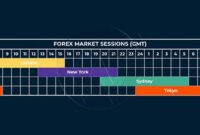Navigating the foreign exchange market requires a keen understanding of currency dynamics. Assessing relative currency value is essential for making informed trading decisions, managing risk, and potentially capitalizing on market fluctuations. This involves analyzing various factors that contribute to a currency’s perceived strength or weakness against others. A robust comprehension of these factors empowers market participants to anticipate potential price movements and adjust their strategies accordingly.
Factor 1: Economic Indicators
Key economic indicators like GDP growth, inflation, and employment rates significantly influence currency valuations. Strong economic performance generally leads to a stronger currency.
Factor 2: Interest Rates
Higher interest rates tend to attract foreign investment, increasing demand for and thus the value of a currency.
Factor 3: Political Stability and Geopolitical Events
Political uncertainty or geopolitical tensions can negatively impact a currency’s value, while stability can bolster it.
Factor 4: Market Sentiment and Speculation
Trader perceptions and speculative activity can drive short-term currency fluctuations, sometimes independent of underlying economic fundamentals.
Factor 5: Central Bank Policies
Central bank interventions, such as monetary policy adjustments and currency interventions, can significantly impact a currency’s value.
Factor 6: Trade Balances
A country with a trade surplus (exporting more than it imports) often experiences a stronger currency due to higher demand.
Factor 7: Public Debt
High levels of public debt can weaken a currency as it may signal economic instability.
Factor 8: Commodity Prices
For countries heavily reliant on commodity exports, fluctuations in global commodity prices can significantly influence their currency’s value.
Tip 1: Use Currency Correlation Matrices
These matrices illustrate the historical relationships between currency pairs, aiding in diversification and risk management.
Tip 2: Monitor Economic Calendars
Staying informed about upcoming economic data releases helps anticipate potential market reactions and volatility.
Tip 3: Employ Technical Analysis
Chart patterns and technical indicators can offer insights into potential future price movements.
Tip 4: Diversify Your Portfolio
Spreading investments across multiple currencies can mitigate the risks associated with individual currency fluctuations.
How can I assess the relative strength of a currency?
Comparing a currency’s performance against a basket of other currencies, analyzing its trend over time, and considering the factors mentioned above can provide insights into its relative strength.
What role does market sentiment play in currency valuation?
Market sentiment, driven by news, speculation, and trader psychology, can significantly influence short-term currency movements, even overriding fundamental factors at times.
Why is understanding central bank policies important?
Central bank decisions regarding interest rates, monetary policy, and currency interventions can dramatically impact currency valuations.
How can I stay updated on market-moving events?
Utilizing economic calendars, subscribing to reputable financial news sources, and following market analysis reports can help you stay informed.
What is the impact of global events on currency markets?
Geopolitical events, natural disasters, and global economic shifts can trigger significant volatility in currency markets.
How does technical analysis contribute to understanding currency movements?
Technical analysis helps identify patterns and trends in historical price data, which can be used to anticipate potential future price movements.
Comprehending the forces that drive currency fluctuations is paramount for successful forex trading and investment. By diligently analyzing economic indicators, geopolitical events, market sentiment, and central bank policies, market participants can make more informed decisions and potentially enhance their outcomes. Continuous learning and adaptation are crucial in the dynamic world of forex.



